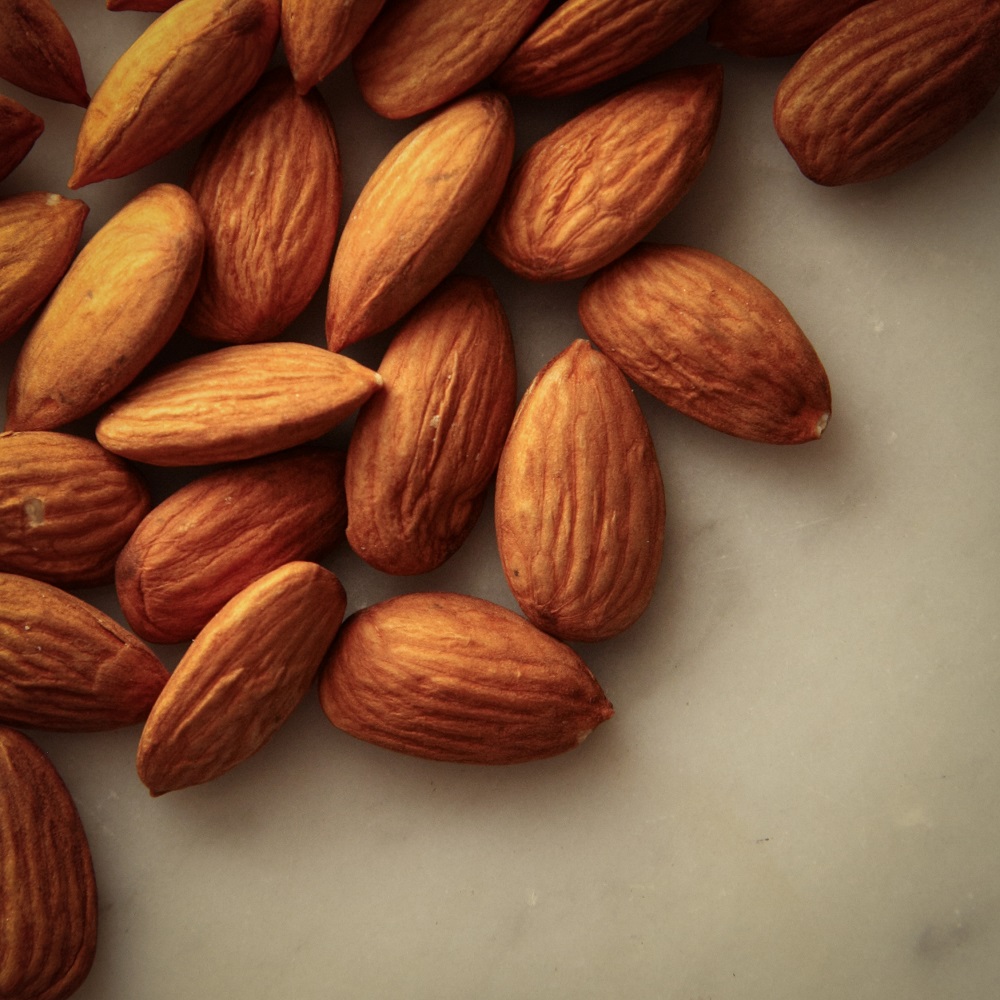Medically reviewed by Jeffrey A. Meyerhardt, MD, MPH
Research shows that consuming nuts reduces the risk of colon cancer recurrence and death, but scientists are still examining why — because at this time, there is no definite explanation for this correlation.
The most recent study found a significant reduction in recurrence and death among patients with stage III colon cancer who regularly ate at least two one-ounce servings of nuts a week, compared to patients who did not eat nuts. The nut-eaters had a 42 percent improvement in disease-free survival and a 57 percent improvement in overall survival.
Interestingly, the association was statistically significant for consumption of tree nuts – walnuts, cashews, almonds, pistachios, hazelnuts, pecans macadamia nuts, and Brazil nuts – but not peanuts or peanut butter.

The findings were limited to patients who already had colon cancer and were treated for it with surgical resection and chemotherapy.
“The jury is out as to whether nuts will prevent you from developing cancer in the first place,” says Temidayo Fadelu, MD, fellow in medical oncology at Dana-Farber who is the lead author of the study. Jeffrey Meyerhardt, MD, MPH, clinical director of Dana-Farber’s Gastrointestinal Cancer Treatment Center and Douglas Gray Woodruff Chair in Colorectal Cancer Research, are also authors.
Fadelu and other specialists emphasize that eating nuts should not be considered a substitute for chemotherapy or other treatments for colon cancer, nor should it be something done in isolation – nuts should be part of a healthy diet.
Learn More:
“The message of the study is that there are things people can do to improve their chances after having colon cancer, such as an increase in physical activity, lower intake of sugar and sweetened beverages, and maintaining a healthy weight,” says Fadelu.
One hypothesis for link between nuts and cancer outcomes centers on the insulin resistance pathway. In individuals with obesity or type 2 diabetes, cells fail to respond normally to the hormone insulin, which helps cells use glucose for energy. As a result, the body produces more insulin, which reaches higher levels in the bloodstream. Epidemiological studies have found a link between diabetes, insulin resistance, and cancer.
“Nut intake is associated with less insulin resistance,” says Fadelu.
In addition, he explains, nut consumption is associated with lower amounts of biomarkers related to inflammation in the body, and inflammation has been implicated in cancer causation.
Further, nuts may also alter the mix of bacteria in the digestive system, Fadelu notes — while reemphasizing that at this point, researchers are still hypothesizing.
Learn more about colon cancer from Dana-Farber Cancer Institute.
